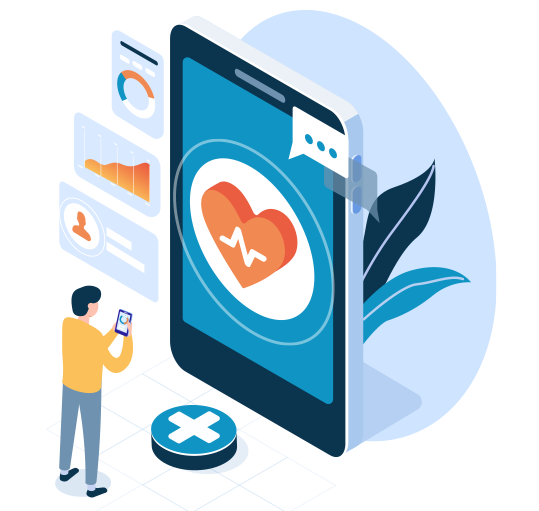We are all getting older, but the rate at which we age, and how well we age, is hugely influenced by lifestyle factors. We now have the ability to not only test for true biological age, but get valuable insights into our own genetic makeup in a host of health areas including heart, gut, eye, immunity, mental, muscle, skin, ageing, sleep and stress. We can then use this information to positively impact our own wellbeing. I have been tested and made changes in my own life, and now you can have the opportunity too.

Genetic testing is available through a simple saliva test. You can order yours via my website here, calling 01202 084550 or emailing info@coastalcardiology.co.uk
Many of my lifestyle choices are made to stay as healthy as I can for as long as I can. I don’t necessarily want to live an extremely long time, but whatever time I do have on this earth I want to live to the full. I want to minimise my risk of frailty as I get older.
I have had an interest in genetics for many years, and my research degree at University College London was in the field of inherited heart disease. However it’s all well and good knowing some theory about ageing and DNA, but what can today’s technology tell us that we didn’t know before? Doing lots of exercise, not-smoking, eating a good diet is obvious, right?
I have outlined below my key messages regarding lifestyle, genes and ageing, but if you would like to know more detail, please click here to download my free guide. If you would like to jump straight to getting tested, please click here
Like much in the world of technology, genetic testing has become much simpler and more cost-effective over the last few years. A sample of saliva is all that is needed to test your whole genome, and provide a host of insights into health and wellbeing.
With all this data, comes a huge potential for personalised medicine. Your genetic makeup could be useful in all sorts of ways. For example it could tell you how susceptible to certain diseases you might be, what foods you should eat for your specific gut microbiome, how suited you are to certain forms of exercise, how you respond to stress or how your body will respond to certain medications.
Genes affect how our body responds to our surroundings and experiences. How our muscles adapt to different scenarios, how our body uses major food groups like carbohydrates and protein, how likely we are to lack certain vitamins and minerals.
We can learn these individual insights, with the intention of looking at our lifestyle and see what changes we can make to optimise areas where our genetic profile may show that the hand we got dealt can be improved upon.

Our cells can also tell us how OLD we are. Many of you will be thinking ‘I know how old I am, it says on my birth certificate’ and yes, that is your chronological age – how many years you have been on this planet. However, your biological age can be rather different. We see this every day with our own eyes. How often have you said “they look good (or bad!) for their age”?
Depending on lifestyle factors such as smoking, diet and exercise, humans age at different rates. Studies have proven this in twins, who have different biological ages depending on how they have lived their lives. Through a simple saliva test and something called ‘epigenetics’, we can now easily calculate a person’s biological age.
My free guide has all the details.
Why is this useful?
It can be reversed. Take the example of an overweight 60 year old man who has a bad diet and doesn’t exercise, with a biological age of 64. The same man uses that information as a lever to address his lifestyle issues. A year goes by and we re-test his biological age. It is now 62. He has scientifically been proven to get younger. This is not science fiction, it is science fact.
I’m so interested in genetics that I have partnered with a genetics company and got myself tested. I wanted to know my own DNA insights, and how they might help me live a longer, healthier life. I am now offering this testing to you.
My personal results were very interesting to me. There are a huge number of them, but the highlights on the plus side are my genetic tendency for muscle strength and stamina, recovery rate and soft tissue inflammation are all very good, which fits with my lifelong passion and ability at sports. My cognition (mental) risk with age is also normal which is a relief as dementia is a worry for me having seen so many patients suffer with it.
However less good is that I am genetically pre-determined to have an increased risk of developing type 2 diabetes, my response to sugar isn’t good, and I am at increased risk of cardiovascular health issues. As a result, I now have annual checks for diabetes and cholesterol, despite only being in my mid 40s, as this can develop without symptoms and have a huge impact on my future health. It also highlighted a risk to certain vitamin deficiencies, which I can now test for regularly in my blood and address in my diet.
As for my age, at the time I took the test I was 43 years and 11 months old, and my biological age was 44 years and 2 months. Obviously I would have preferred to have been biologically younger than my chronological age, but this is still evidence to me that my own lifestyle choices are working out for me, and my overall aim of minimising my risk of future frailty is on track. Clearly I am not getting younger, but I’m doing everything I can to age well.
If you would like to order your own genetic test kit, the process is simple. Click here for further details. If you would like to read more, click here to download a copy of my guide.
